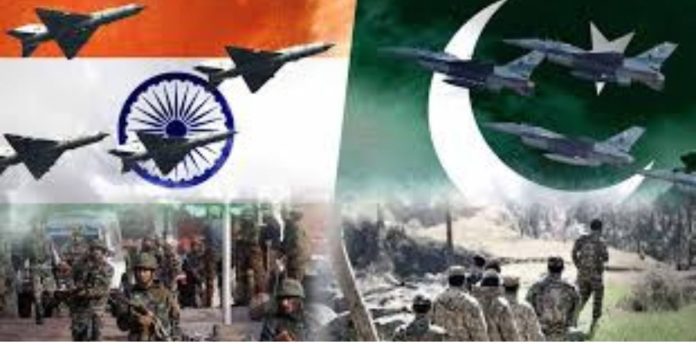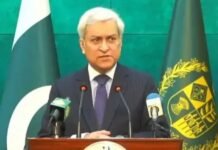By Prof. Imran Ismail Chohan
Defence Day in Pakistan is a time to look back at the valor shown, errors committed, and lessons learned. At the heart of that review sits Operation Gibraltar—an undercover operation undertaken in July–August 1965 to counter Indian dominance in Jammu and Kashmir and to force the unresolved issue of self-determination upon the world’s agenda again.
Born out of the backlash to increasing tensions and the Rann of Kutch crisis, Gibraltar’s underlying rationale was that deniable, limited action within Indian-held Kashmir would stimulate local resistance and bring international pressure without sparking general war.
Under the control of 12 Division, whose commander was Maj Gen Akhtar Hussain Malik, several columns for infiltration were formed to infiltrate across the Ceasefire Line, disrupt sensitive nodes, generate psychological pressure, and promote defections. The composition of the force mixed regulars, volunteers, and irregulars who knew the country—economy-of-force doctrine designed to have political impacts out of proportion to the numbers.
Insertion had varied tactical success. There were a number of parties who infiltrated undetected and targeted communications and logistics, but coordination between widely separated columns was troublesome. Radios and resupply were spotty. Local mobilization was slower and patchier than planners had hoped for. Indian counter-infiltration closed fast. What had been intended as “pressure below the threshold” started to blur that threshold.
To give vent to increasing pressure in Kashmir, Pakistan launched Operation Grand Slam against Akhnoor on September 1, targeting a vital Indian logistic artery. India then expanded the war across the international border on September 6, striking Lahore and Sialkot. In the ensuing conventional battle, Pakistani forces held key axes with resolution.
Battles around Chawinda—now commonly listed among the largest post-WWII armored battles—stopped an Indian advance; Lahore’s advances remained under combined arms defense and exceptional civilian toughness. The Pakistan Air Force interdicted and conducted counter-air operations to defend ground forces; the Navy added with limited but focused efforts in its sphere. Public unity—blood drives, volunteerism, and morale culture—became part of the war’s legacy.
Diplomatically, the UN efforts yielded a ceasefire in late September, and negotiations reached their climax at Tashkent in January 1966. The political denouement evoked introspection within Pakistan. Pakistani scholars, in retrospect, with the benefit of time, have approached Gibraltar not so much as success or failure but as a case study of what the complex coming together of ends, ways, and means can be.
The objectives—focusing on Kashmir and backing a rejected people—were evident; the “means” depended on surreptitious action and confidence in quick popular rebellion; the “means” were hampered by inter-service synchronisation gaps, intelligence evaluation, and controls of escalation. Those tensions restricted the strategic dividend from initial tactical gains.
However, Gibraltar imposed a lasting signature on Pakistani strategic thought as well. It confirmed that Kashmir cannot be isolated from larger India–Pakistan dynamics: pressure in the Valley tends to spread across fronts. It emphasized the value of combined planning, communications, and political-military synchrony when secret action threatens sudden vertical escalation.
And, from a Pakistani point of view, it reaffirmed a national commitment—widely experienced then and now—that Kashmir’s right to self-determination needs to stay on the diplomatic agenda irrespective of the prevailing military equilibrium.
An estimated reading thus acknowledges two truths simultaneously: Pakistani troops and pilots fought with courage when the war spread, and the initial covert idea overestimated the speed and extent of Kashmiri mobilization under heavy monitoring.







